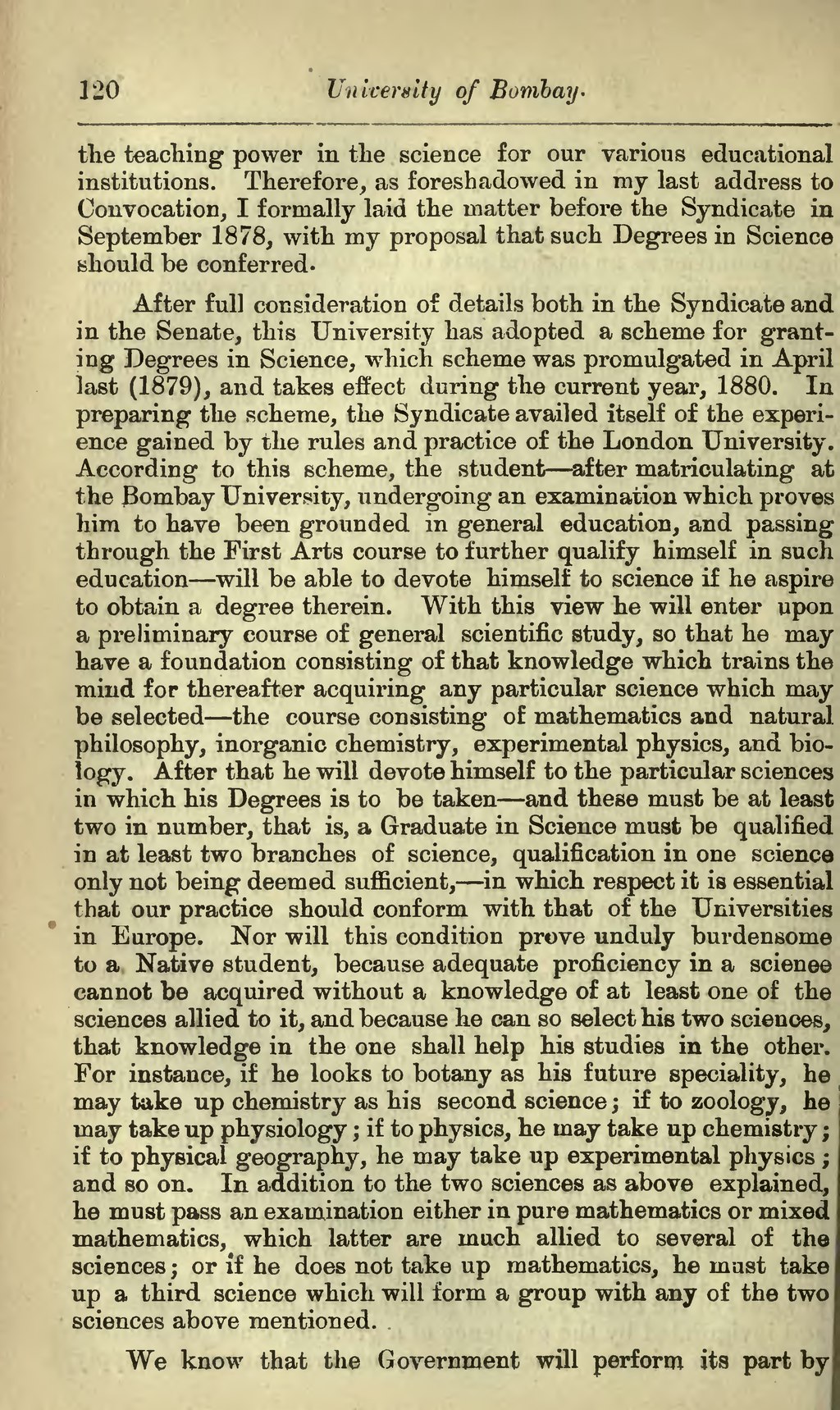the teaching power in the science for our various educational institutions. Therefore, as foreshadowed in my last address to Convocation, I formally laid the matter before the Syndicate in September 1878, with my proposal that such Degrees in Science should be conferred.
After full consideration of details both in the Syndicate and in the Senate, this University has adopted a scheme for granting Degrees in Science, which scheme was promulgated in April last (1879), and takes effect during the current year, 1880. In preparing the scheme, the Syndicate availed itself of the experience gained by the rules and practice of the London University. According to this scheme, the student—after matriculating at the Bombay University, undergoing an examination which proves him to have been grounded in general education, and passing through the First Arts course to further qualify himself in such education—will be able to devote himself to science if he aspire to obtain a degree therein. With this view he will enter upon a preliminary course of general scientific study, so that he may have a foundation consisting of that knowledge which trains the mind for thereafter acquiring any particular science which may be selected—the course consisting of mathematics and natural philosophy, inorganic chemistry, experimental physics, and biology. After that he will devote himself to the particular sciences in which his Degrees is to be taken—and these must be at least two in number, that is, a Graduate in Science must be qualified in at least two branches of science, qualification in one science only not being deemed sufficient,—in which respect it is essential that our practice should conform with that of the Universities in Europe. Nor will this condition prove unduly burdensome to a Native student, because adequate proficiency in a science cannot be acquired without a knowledge of at least one of the sciences allied to it, and because he can so select his two sciences,that knowledge in the one shall help his studies in the other. For instance, if he looks to botany as his future speciality, he may take up chemistry as his second science; if to zoology, he may take up physiology; if to physics, he may take up chemistry; if to physical geography, he may take up experimental physics; and so on. In addition to the two sciences as above explained, he must pass an examination either in pure mathematics or mixed mathematics, which latter are much allied to several of the sciences; or if he does not take up mathematics, he must take up a third science which will form a group with any of the two sciences above mentioned.
We know that the Government will perform its part by
